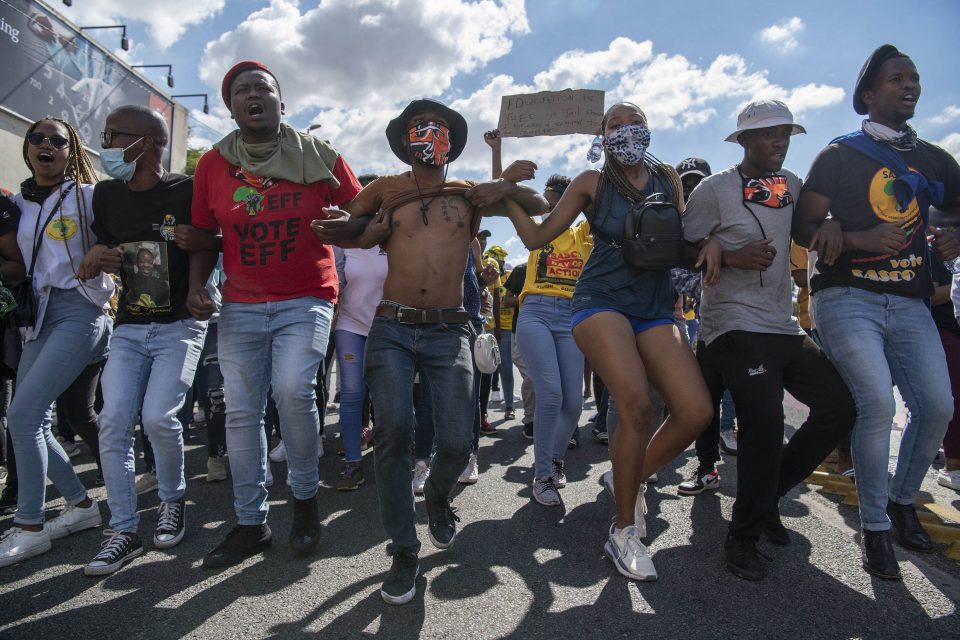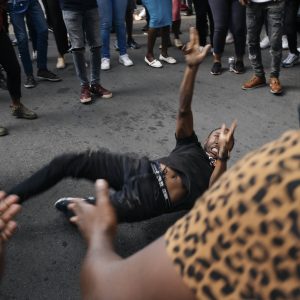The hierarchy of inequality
Campaigners sense racial inequality extremely accurately but lack the same sensitivity to social and economic inequality, as is evident in the recent student protests.
Author:
31 March 2021

Why do South African campaigns against poverty and inequality often demand changes that give the middle class and wealthy what they want?
The conflict on university campuses over student debt is a good example because it shows the difference between a demand that would fight poverty and one that would not, and how easily campaigners scramble the two.
The exclusion of students with historic debt triggered the protests; demonstrators demand that no one be excluded because they cannot pay. In one sense, this demand is less favourable for impoverished people than it seems because if universities are a priority, schools may not get the funds they need. Probably the most pressing educational need for the vast majority who are denied it is preschool. Children who receive quality preschool educations are likely to achieve more and so inequalities at this level mean that impoverished Black people start life with a massive chain around their necks.
Despite this, the demand does express a need of people living in poverty. If we want a more equal country, no one should be denied a higher education because they can’t afford to pay for it. Whether you go to university and achieve a degree should depend on your academic ability, not the size of your family’s bank balance. The problem of student poverty runs deep, as thousands cannot afford three meals a day, which makes it far more difficult to study.
Related article:
Student poverty also ensures that inequality is passed from one generation to the next. If only those who have enough are assured not only of an education but also of the material support needed to do well, the gap between the well-off and the rest will continue to grow and universities will continue to act as inequality factories. To insist that no one should be denied an education because they have no money is to demand concrete action against poverty and inequality. A further plus is that, if these demands are met, the money is likely to come out of university budgets and so will not mean less for schools or other public services.
But demands to end financial exclusion tend to morph quickly into campaigns for free higher education. This sounds more radical, but offers nothing to people living in poverty. It would allow the sons and daughters of the wealthiest to pay nothing for their higher education and it is difficult to see how anyone could see a freebie for the wealthiest as a step towards social justice. It would also deprive higher education of the money of those who can afford to pay.
No free passes
Funds would need to come from elsewhere and, if the recent past is any guide, these would come out of budgets for impoverished people. When Jacob Zuma saddled the government on his way out with the cost of a limited move towards free higher education, it cut spending on townships and shack settlements. Even if a way can be found to prevent this, allowing the rich and super rich to avoid paying for higher education will not produce a fair society.
One example of how campaigners for free higher education ignore social justice principles is their argument that it does not matter if some people can afford it because they aren’t a large section of the population – only around 5%, according to one estimate. But if we care about fairness, the fact that only one in 20 can pay is an argument for making them pay, not for giving them a free pass.
Related article:
The whole point of economic justice campaigns is that relatively few live well while others battle. This is why campaigners in other countries insist that the 1% must pay to enable the rest to benefit. The fact that there are only a few rich people shows why we have a problem; the question is not how many there are but how much they can afford to pay. The 5% might be able to afford to pay enough to end financial exclusion for everyone. Even if they can’t, their resources would make funding less of a problem. The way to fairness in higher education is to expect the 5% to pay more, not to let them off the hook.
A common way of thinking
Similarly skewed thinking is at play in another controversy that is in the news again: e-tolls. This charge ensures that people who can afford to own vehicles pay a toll to enable those who can’t to use the roads without paying. It is a progressive tax because those who have enough pay to support those who have not. And yet here, too, social justice campaigners heartily endorse the idea that people who cannot afford cars should pay – through a fuel levy that would raise the cost of travelling by bus or minibus – so that car owners pay less.
Why do campaigners who say they believe in a fairer society repeatedly mistake the needs of the affluent and the middle class for those of impoverished people? There are two answers. The first is that, after a quarter-century of democracy, South Africa is still divided between insiders and outsiders. Politics is insider politics and the insiders always think that their issues are everyone else’s. This applies even when the insiders claim to be fighting on behalf of people in poverty.
The second stems from political and social history. While left-wing politics, which is meant to fight poverty and inequality, is more than a century old here, the key divide over the past century has been race. Fighting injustice has always been mainly about racial injustice. The Left in the ANC and other popular movements were usually not those who insisted on economic equality but those who fought harder and more militantly against racial inequality.
Related article:
A prime example is the much-misunderstood theory of “national democratic revolution” that underpinned the Freedom Charter and still brings foam to the mouths of right-wingers across the country. Its aim was not to end all inequality, only racial inequality was the target. If it was implemented, there would still be very rich and very impoverished, but racial differences would have been defeated and so most of the very rich would be Black and some of the very impoverished would be white. It used radical language to demand a non-racial society. Economic inequalities within racial groups were not its concern.
While not everyone who fought apartheid supported the Freedom Charter, this way of thinking is common across the spectrum of those who claim to speak for the majority. It explains why campaigners sense racial inequality extremely accurately but lack the same sensitivity to social and economic inequality. This does not mean that they are deluded, race remains crucial. But it does mean that in a country where race remains the prime cause of inequality, noticing other varieties is difficult.
But it is not impossible. Those who insist that the country ignore race and concentrate on other inequalities are deflecting attention from the source of unfairness that matters most. But this does not mean that only campaigns which confuse the better-off with the whole country are possible. Even in a society in which race matters most, it is possible to avoid campaigns that use the language of equality to demand a better deal for the better-off.



